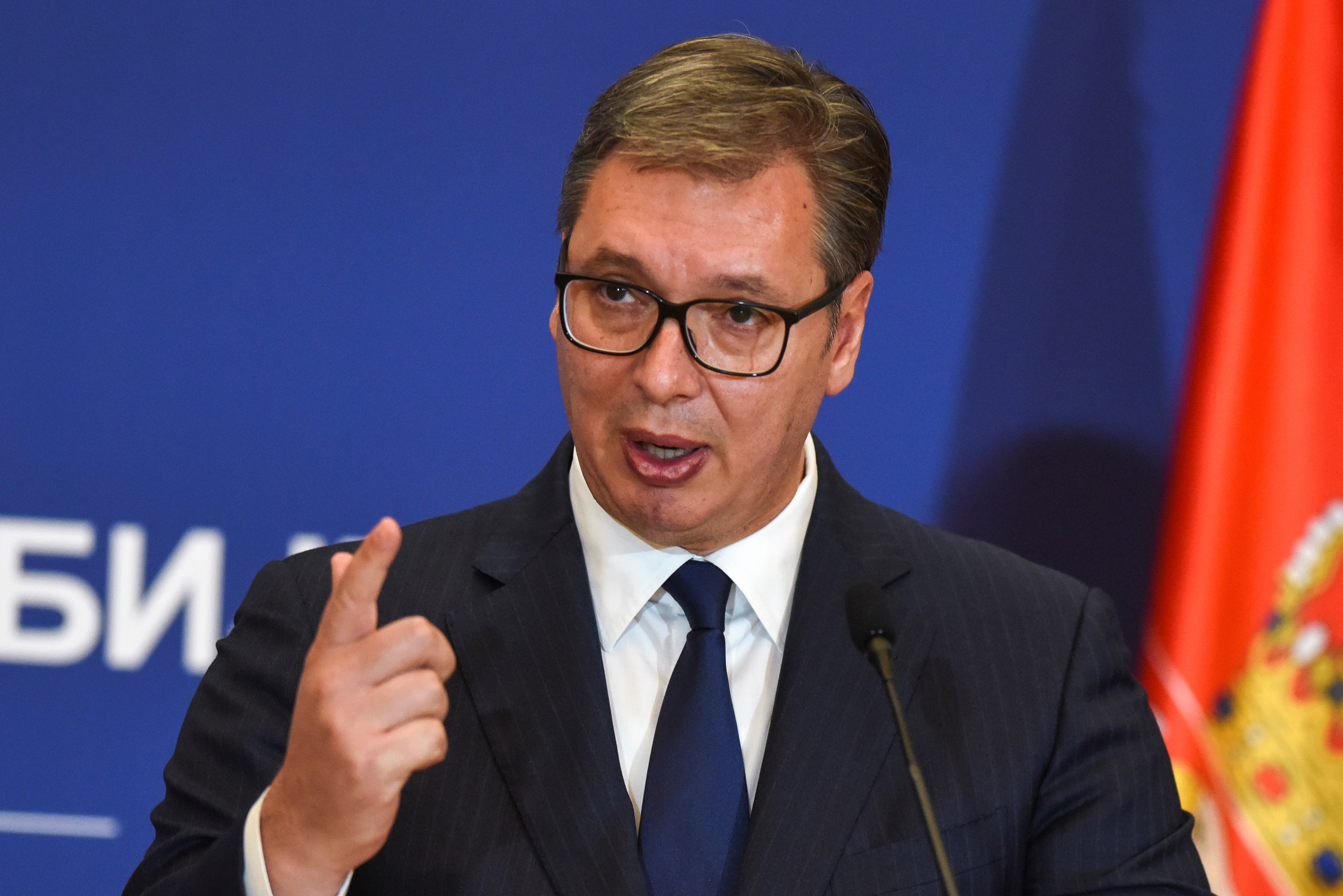Serbia not to join NATO, cites children killed in 1999
Serbian President Aleksandar Vucic says his country will not join NATO because it cannot forget the children killed in 1999 in Yugoslavia.
-

Serbian President Aleksander Vucic
Serbia will not join NATO, because it cannot forget the children killed during the alliance's aggressions against the former republic of Yugoslavia in 1999, which Serbia was part of before its disincorporation, President Aleksandar Vucic told an election rally in Kikinda on Monday.
"I believe that Serbia must not join NATO. Serbia is a free country and a militarily neutral country. Serbia will be defending its land and its sky on its own, but let me tell you something: our duty is to forgive and our duty is not to forget," he added.
He went on to remind of the death of 11-month-old Bojana Tosic, who was killed in Merdare. He also recalled the killing of Milica Rakic in Batajnica and Sanja Milenkovic in Varvarin. "We have no right to forget this," he stressed.
"We will get far more stronger than we were in those days, when the irresponsible, the arrogant, and the presumptuous were bombing us and waging a war of aggression against us and our country," the Serbian president affirmed.
NATO had waged aggression against Yugoslavia in 1999 for 78 days, which led to the disincorporation of the former republic and killed between 3,500-4,000 and injured some 10,000 others, two-thirds of which were civilians. The alliance's aggression cost Belgrade around $100 billion in material damages.
Over the period of the aggression, Brussels dropped 15 tonnes of depleted uranium in bombs and shells, after which the country's cancer rates spiked, ranking it the first in terms of cancer in Europe. In the first ten years following the heavy shelling, about 30,000 developed cancer, and estimations say that between 10,000-18,000 of them died.
The Serbian President's statements came in light of NATO's aspirations to expand eastward, and the latest country who it sought to include was Ukraine, which prompted Russia to launch a special military operation in the country to deter the alliance and impede Kiev's bombardment of the Donbass region, among other reasons, such as the denazification and demilitarization of the country.

 2 Min Read
2 Min Read









